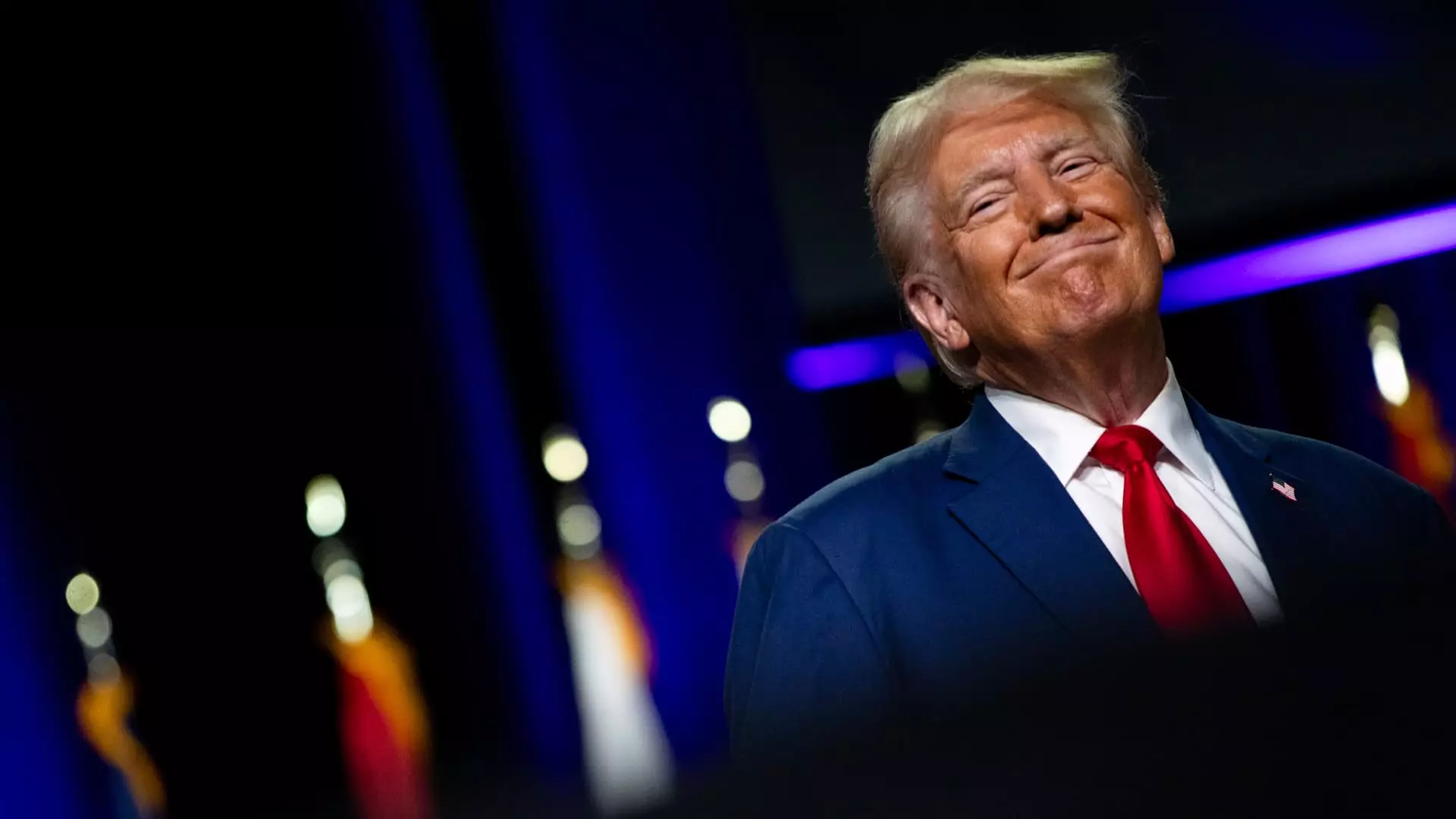As the clock ticks toward another chapter in American political history, the landscape of tech and politics reveals an intricate web of alliances and enmities among some of the most powerful figures in the industry. The relationship between the technological elite and politicians, particularly former President Donald Trump, has oscillated between fierce competition and pragmatic cooperation. Recent developments underscore how CEOs from major tech companies are recalibrating their strategies to adapt to the shifting political winds, raising questions about the intersection of technological authority and governmental influence.
The interplay between Facebook’s CEO Mark Zuckerberg and Amazon’s Jeff Bezos with Donald Trump is a narrative entrenched in contradictions. Despite their respective grievances against Trump during his first term—ranging from accusations of misinformation to dilapidated regulatory practices—these tech leaders have recently pivoted in support of Trump’s forthcoming administration. For instance, Zuckerberg has been known for his critique of Trump, yet post-election strategies seem to indicate a willingness to reconcile past disputes. This is particularly resonant following reports that Meta has pledged a substantial $1 million to Trump’s inauguration fund—a gesture that some may interpret as a calculated attempt to foster goodwill with a powerful ally at a time when big tech continues to face mounting scrutiny.
Jeff Bezos, who is no stranger to political fallout with Trump—often characterized by the latter’s barbs about Amazon’s tax payments and alleged abuses of the U.S. Postal Service—seems to be adopting a similarly conciliatory approach. Recent public statements from Bezos indicate an optimism about a potential shift in regulatory attitudes under Trump’s presidency. His assertion at The New York Times’ DealBook Summit reflects a strategic foresight, aiming to align himself with administrations that appear poised to dismantle restrictive regulations that have hobbled growth in the tech industry.
Elon Musk, the enigmatic head of SpaceX and Tesla, adds a further layer of complexity to this political tapestry. Musk’s financial backing of Trump’s campaign—amounting to considerable donations—suggests he seeks to position himself favorably in an administration that may draw upon his expertise in technology. The legal feud between Musk and OpenAI’s CEO Sam Altman illuminates the intense rivalry that unfolds alongside the public display of political allegiance. Musk’s criticisms of OpenAI, which he co-founded, around its transition from a nonprofit to a for-profit model represent not just a personal split but also a broader commentary on the tension surrounding the ethical implications of AI technology.
Altman’s recent commitment to donate $1 million to Trump’s inauguration further complicates the narrative. It reflects a calculated decision to support a figure who has shown mixed sentiments towards the tech sector, especially in terms of regulation. Moreover, as Trump begins to form his new government structure, concerns arise about Musk’s potential influence in an administrative role focused on governmental efficiency. Should Musk secure a position that influences AI oversight, the implications for regulatory frameworks could be profound, especially if they skew towards benefiting his own enterprises.
With Trump positioning himself to return to the White House, reactions from the broader tech sector become pivotal in the exploration of future regulatory landscapes. Leaders from companies such as Apple, Microsoft, and Google have already begun to engage with Trump through public accolades, indicating a desire to align with an administration known for both unpredictability and possible leniency towards big tech. The noticeable shift in rhetoric could signal a broader pivot within the tech community, as industry giants may seek to shield themselves from impending regulatory scrutiny by forging connections with the New Administration.
This intricate dance between allegiance and pragmatism is underscored by the broader discourse surrounding antitrust enforcement. Trump’s recent nomination of Gail Slater, a known ally in combating big tech, to the helm of the Department of Justice’s antitrust division may not only reignite tensions but elevate the stakes for these tech leaders—many of whom are now betting on a freshly minted political ecosystem to turn the tide in their favor. As they navigate these treacherous waters, the outcomes may reshape the identity and future trajectory of the technology sector in profound and lasting ways.
The evolving dynamics amidst these major players serve as a reminder of the intricate balance between corporate power and political influence. The intricate relationships being formed in the aftermath of the election will likely dictate not only the strategic futures of these tech companies but also the regulatory frameworks that govern the landscape of American technology.

